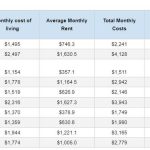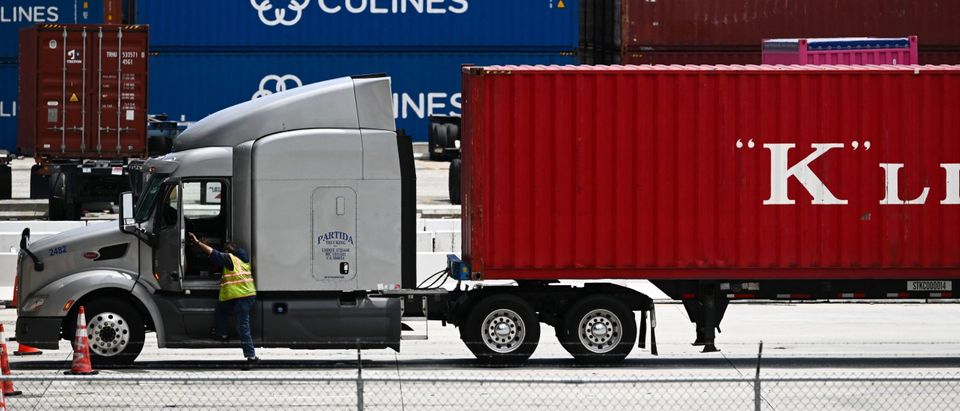Curtis Ellis warns against Wall Street involvement with China’s Ant Technology Group
The Chinese Communist Party’s information war against the U.S. continues.
Federal prosecutors charged five Chinese citizens linked to Chinese intelligence with hacking more than 100 companies in the U.S. and overseas, including social-media firms, universities and telecommunications providers.
A database, called the Overseas Key Information Database, retrieved by an Australian cybersecurity company, reveals that the CCP has been collecting information on more than 2 million people, including at least 50,000 Americans and tens of thousands of people who hold prominent public positions including foreign political, military and business figures. The database also contains information on countries’ infrastructure, military deployments and public opinion analysis.
The CCP uses this information to build a profile of an industry that is likely to have access to intellectual property or decision makers, and where to find them. It enables the party to run influence operations, for example by offering a businessman a sweetheart deal making him favorably disposed to China, or entrapping him in a compromising situation for threat of extortion.
The CCP’s economic war continues as well.
And on that front it’s getting help from some of the biggest names on Wall Street.
The Chinese Communist Party is preparing to launch a major campaign that could fleece American investors of billions of dollars to fund its drive for global hegemony.
Ant Technology Group (Ant Group), formerly known as Ant Financial Services Group, is a subsidiary of Chinese e-commerce giant Alibaba Group Holding, the e-commerce giant that made Jack Ma one of the world’s richest men.
Ant provides financial technology (fintech) products and services. It’s expected to soon issue an Initial Public Offering in Hong Kong and Shanghai to raise $30 billion – the largest IPO in history.
It’s important to remember even so-called “private” Chinese companies are beholden to the Chinese government according to its National Intelligence Law and security laws and regulations.
Even though the Ant Technology Group IPO will not be listed on U.S. exchanges, international stock index funds could pour billions from American investors into the Ant hill. That would not only prop up the brutal Marxist-Leninist regime, it would put Americans at risk financially.
When President Trump barred the pension funds of civilian and military employees of the federal government from investing in index funds that include Chinese companies, National Economic Council Director Larry Kudlow and National Security Adviser Robert O’Brien explained the risk:
“[S]candals involving Chinese companies in recent years have cost investors billions of dollars. … The Chinese Government currently prevents companies with Chinese operations listed on U.S. exchanges from complying with applicable U.S. securities law, leaving investors without the benefit of important protections.”
The Obama-Biden administration struck the deal that exempts Chinese companies from U.S. securities laws.
Kudlow and O’Brien noted, “In addition to the uncertainties surrounding the financial reporting of these companies, some of the Chinese companies themselves present significant national security and humanitarian concerns for the United States, which increases the risk that they could be subject to sanctions, public protests, trade restrictions, boycotts, and other punitive measures that jeopardize their business and profitability.”
An analysis by RWR Advisory Group identifies several areas of serious material risk that the Ant IPO prospectus fails to disclose.
Cybersecurity: The fintech sector faces heightened cybersecurity risk with personal and financial user data subject to theft or breaches of privacy. Ant was forced to abandon its attempted acquisition of Dallas-based digital payment and money transfer platform MoneyGram International in 2018 after it became clear it would be nixed on national security grounds. The takeover would have granted Ant Financial access to MoneyGram’s mobile users’ accounts – including large numbers of U.S. military personnel. Earlier this month India banned Ant affiliate Alipay and 117 other Chinese-owned apps due to data collection and privacy concerns.
Human Rights: Ant and its parent Alibaba use facial recognition technology in their payment systems. The companies are both investors in Megvii Technology, an artificial intelligence (AI) startup that specializes in facial recognition technology. Megvii was sanctioned by the U.S. government in October 2019 for “human rights violations and abuses in the implementation of China’s campaign of repression, mass arbitrary detention, and high-technology surveillance” of the Uighur Muslims in Xinjiang.
National security: Alibaba has been identified by the U.S. government as a leading participant in the CCP’s integration of military and civilian technology, particularly in the areas of artificial intelligence (AI) and big data.
One of Ant Group’s subsidiaries, Zhima Credit Management (Sesame Credit), is using large-scale data collection and analysis for the development of the CCP’s coercive “social credit” system. This scores citizens based on their social track records, assigning rewards or punishments depending on how they have scored throughout their daily lives – in other words, how well they have toed the party line.
Ant’s investments pose a material risk to investors because Washington could impose sanctions on any of these companies for their human rights abuses.
In addition, the escalation of tensions between the United States and Communist China puts Ant Financial at risk of financial repercussions.
The flip side of that coin is American investors in Ant Financial could be recruited to lobby Washington to go easy on the CCP lest their portfolio suffer financial repercussions. Call it the LeBron James effect.
Or call it the Wall Street effect.
Large money center bankers are famously loath to let niggling details such as national security, human rights and freedom of thought get in the way of making money with Marxists.
For example, China Shipbuilding Industry Corp. – the conglomerate that has refurbished and built all three of China’s aircraft carriers – is currently held in the investment portfolios of our country’s largest public pension funds, including California, New York and Texas, and by university endowments as well. Wall Street has long lobbied for maintaining close ties with Beijing.
Some of the biggest names on the Street – Citigroup, JPMorgan and Morgan Stanley – are involved in the Ant deal, eager to split up to $300 million in fees. Goldman Sachs is also reportedly in on the action.
But these banks also have a fiduciary responsibility to investors even if they don’t care about human rights or the nation’s security. Involvement with Ant exposes their shareholders as well as other investors down the line to the undisclosed risks identified above.
For these reasons, the Committee on the Present Danger China is calling on the Wall Street banks to disassociate themselves from the Ant Technology Group’s initial public offering.
Meanwhile, where are the watchdogs? The SEC and the Consumer Financial Protection Bureau have a statutory responsibility to protect investors and consumers. Why aren’t they barking?
These agencies should follow the example of Customs and Border Protection. CBP ordered a stop to the importation of textiles and computer parts made by Uighur Muslims imprisoned in the CCP’s Xinjiang concentration camps.
It is more than clear to anyone with eyes that we are engaged in an economic, information, ideological and spiritual war with the CCP.
Corporate leaders need to behave accordingly. The future of our nation is more important than a quarterly earnings report.













